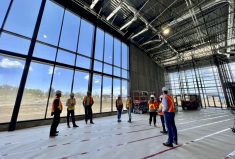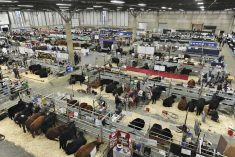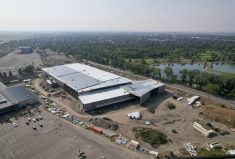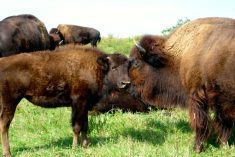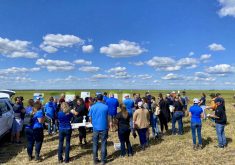Farmfair International has driven major changes in the way two international beef producers grow cattle. And it all comes down to Canadian genetics.
Just ask Colette Masterson of South Africa. She and her husband, Andrew, first visited the Edmonton event five years ago. They’ve never looked back.
“When we visited Farmfair for the first time in 2018, it was the start of our Charolais program,” she said.
Read Also
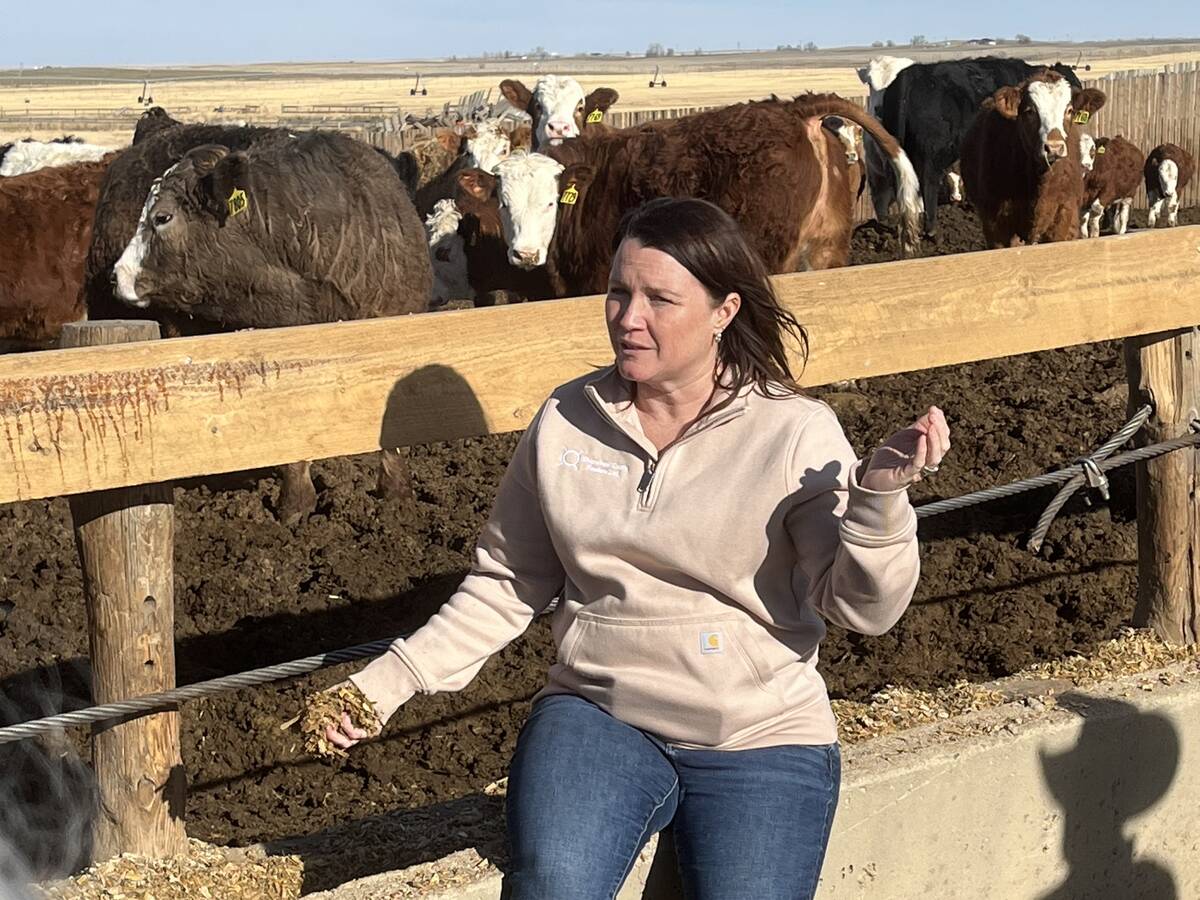
Roots of Resilience: The 50-year evolution of Shipwheel Cattle Feeders
Alberta’s Shipwheel Cattle Feeders is one of Canada’s pioneers in holistic regenerative agricultural practices.
“We never thought Charolais was part of our future. We had Simmental and Angus and after visiting Farmfair, we fell in love with specifically the Canadian Charolais and we left Farmfair with some Canadian embryos. The start of our herd was 100 per cent Canadian-bred Charolais.”
Added Andrew Masterson: “Canada is pretty much the home of our genetics. We really value the quality of Canadian genetics. We think that the Canadian cattlemen set the standard for the rest of the world.”
He came to Farmfair this year to participate in the Champion of the World competition in the Simmental division, which he won.

Rachael Wheeler of Australia first came to Farmfair in 2010 and has returned as often as possible ever since.
“That’s where we established our love of the Angus cattle that the Canadians are breeding,” she said.
“From that we took genetics back and built our whole herd on them. We transitioned from what we were doing into straight Canadian Angus embryos, all from Miller Wilson Angus.” Miller Wilson Angus is a Bashaw, Alta., based Black and Red Angus operation.
The 2023 edition of Farmfair International took place Nov. 8-11 at the Edmonton EXPO Centre. The nearly half-century-old event is billed as one of Canada’s top agricultural shows and Alberta’s largest beef cattle show.
For four days in November, Farmfair is home to exhibitors from across Western Canada who demonstrate their livestock genetics to purebred producers, local ranchers and international buyers.
One of its premier events is the inbound buyer program, which introduces delegates to a cross-section of Canadian breeders, genetics companies and agri-businesses. Both Andrew Masterson and Rachael Wheeler were introduced to Farmfair through the program in 2018 and 2010 respectively.
The Mastersons raise Simmental, Angus and Charolais cattle in Humansdorp on the Eastern Cape of South Africa. The first Canadian Charolais embryos they purchased from a breeder at Farmfair would, according to Andrew, become the first of their kind in the country.
“If we weren’t at Farmfair as part of the inbound tour, these genetics wouldn’t be in South Africa.”
Perhaps the main attraction of Canadian Charolais is hardiness, he added.
“South Africa is a challenging country. Our climate is very diverse; we’ve got areas which are very arid and then we also have areas which are very tropical, so different types of cattle actually fit into different areas.
“But the breeds we’ve selected — like the Angus, Charolais and Simmental — are pretty well adapted to any climate in South Africa and they do really well.”
The adaptability of Canadian cattle in general is another attraction, said Colette.
“What we see here are cattle with lots of hair. We’ve got a lot of tick worm diseases (in South Africa) so you don’t want a lot of hair because that’s what you need for your climate.”
However, the Mastersons’ Canadian-built herd has not had that problem.
“It’s amazing how you take genetics from Canada and put them in South Africa and have smooth-coated cattle,” she said.
This adaptability is all the more impressive because Canadian Charolais are bred for the cold but adjust to South Africa’s climate with ease.
“What stood out was how these cattle actually survive in these freezing conditions. How they survive and actually thrive is very impressive,” said Andrew.
Wheeler raises Angus cattle in New South Wales, a state on the east coast of Australia. Angus are already popular in the southern and central regions of Australia, but she thinks the Canadian Angus traits give her herd an edge.
“We just really like the type and kind and we really like the maturity pattern,” said Wheeler, who also runs a sheep program.
“These cattle have got lots of natural mass and middle. They’re really correct cows that make great mama cows. These are the cattle that we were really looking for and that fit into what we do.”
Although the hairiness of Canadian cows initially made the Mastersons nervous, Wheeler was searching for that trait.
“We live in the colder part of Australia so we want cattle that can hair up, hold condition and survive. It’s nowhere near as cold as what you guys get, but we definitely get snow days and things like that. We’re up in high country.”
Wheeler also praised the adaptability of her Canadian Angus cattle.
“What we found is that the genetics can work across a range of environments and they’re performing across the board. Our clients are coming back wanting more and more,” she said.
She’s impressed by the intensity of Canadian cattle production.
“You guys, especially the purebred side here, spend all summer making feed to feed it out all winter. You’re very intense here. We can generally calve all year round and have cows out on grass all year round. We’re not putting them in pens and having to bed them and all that sort of thing.”
Unlike 2010, when she was a guest of the inbound buyers program and had most of her expenses paid, Wheeler came to this year’s Farmfair under her own means. Why does she keep returning?
“I think it’s awesome because you get a tremendous lineup of cattle to the show. You get a range of people who travel from all across the world. It creates a really nice atmosphere in the barns,” she said.
“It makes it really easy when you’re an international visitor to be able to get around and tour lots of herds and programs.”




